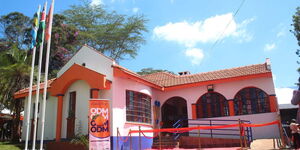President William Ruto on Wednesday, January 4, downplayed criticism over his promise to lower prices of basic commodities in the country- arguing that the price of maize flour would be at Ksh300 had the Azimio la Umoja coalition won the election.
Speaking in a joint media interview, the President reiterated that his administration was committed to lowering the cost of living through a raft of measures put in place since assuming power in September.
According to him, the situation at the moment was better compared to when he assumed power, which he advanced as an indicator that the country was on course to make essential commodities affordable for Kenyans.
“The average price of unga is about Ksh190, if this election went otherwise, perhaps this price could be around Ksh300.
If you are not sensitive to the current situation and fail to make a point of knowing what is happening in the country then you cannot solve these challenges," he posited.
He reiterated that the measures put in place by his government will eventually help to alleviate the economic crisis facing the country.
According to him, the Kenya Kwanza administration embarked on an endeavour to weed out cartels and brokers from the supply system as a way of preventing economic sabotage.
He further cited his efforts to subsidize farm inputs, including fertilizer as one of his dedicated measures to achieve food security and prevent a spike in food prices in the future.
Ruto further elucidated his plan to revamp the Galana-Kulalu project aimed at producing maize- among other crops.
He assured that the project, alongside others to be launched, would help to offer an alternative to the importation of maize.
In addition, the Head of State addressed concerns about his move to withdraw subsidies on electricity and maize flour. He described the subsidies put in place by his predecessor, retired President Uhuru Kenyatta, as a move aimed at influencing voting patterns during the August election.
He also reiterated his previous stance that the subsidies on consumption were not sustainable.












